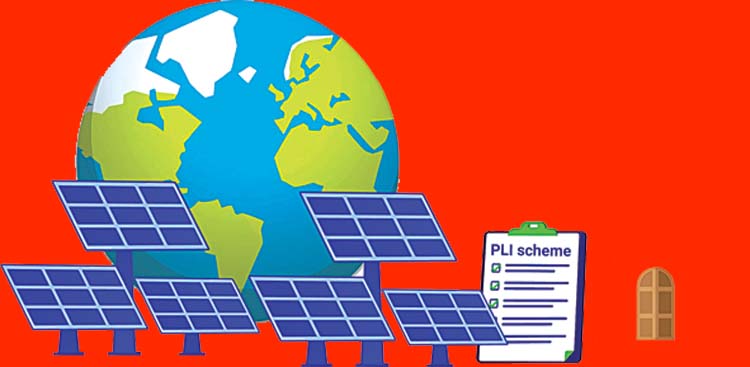New Delhi, May 11 (Bureau) India Ratings and Research (Ind-Ra) on Tuesday said the solar production-linked insurance (PLI) scheme will benefit 8-13 per cent of the photovoltaic energy plant requirement till 2029-30, and aid 20 gigawatt (GW) capacity development in the next five years. ‘Ind-Ra estimates that the allocation of Rs 45 billion (Rs 4,500 crore) towards the solar modules manufacturing industry by the Ministry of New and Renewable Energy (MNRE) can benefit the sales of 20 GW from the capacity developed under the PLI scheme across the five-year implementation period,’ according to a statement.
It added that it will happen assuming 100 pc localisation (up to 30 GW in case of 65 pc localisation). It also means sanction of the PLI facility which will benefit 4-6 GW of sales annually over five years from commissioning of the beneficiary manufacturing facilities. The scheme can facilitate additional 8-12 GW annual solar cell/ module manufacturing capacity in India. Sales up to 50 per cent of the manufacturing capacity set up by the winning bidder will benefit from PLI. This estimate assumes the base PLI rate of Rs 2.25 per watt power and entirely greenfield (new) expansion. The capacity to benefit under the scheme may further reduce from the stated 20 GW level in case of the plants achieve better module efficiency and temperature coefficient than the minimum requirement defined in the notification.
India has set a target to install 280 GW of solar power plants by FY30. Out of this, about 240 GW is under pipeline or yet to be implemented. It means just 8-13 per cent of this planned requirement is going to benefit directly from the PLI scheme till FY30 (assuming localisation to be between 65 per cent and 100 per cent), apart from improving the domestic manufacturing capacity, it added. The statement also said that as per an MNRE notification dated March 30, 2021, the overall extension in timelines for commissioning of solar power generation projects is limited to six months. And, solar power developers are walking on a tight rope, given that they need to commission projects well before April 1, 2022, when the 25 per cent/ 40 per cent basic customs duty kicks in for solar cells and modules, respectively. These capacities will still have to come up based on imported modules, given that it will take time for domestic manufacturing capacities to set up.

